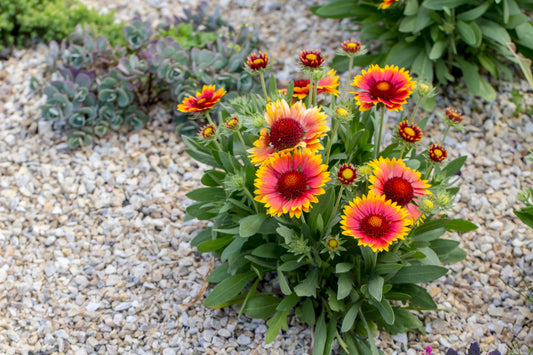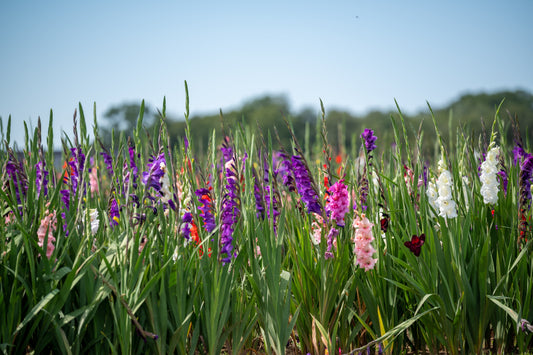Brassica Planting & Growing Guide
Planting Guide Information
-
Generally plant level with soil line. Provide thin layer of mulch.Planting Depth
-
About 2 ft.Planting Proximity
-
Spring to FallPlanting Season
-
Grow your own food!Plant Benefits
-
ModerateWater Quantity
-
Varies; See specific productsBloom Season
-
Full SunSunlight Quantity
-
Generally Zones 5-8 are bestHardiness Zones
Additional Growing Information
Where to Plant Broccoli/Brussels Sprouts/Cabbage/Cauliflower
Plant in the ground or in containers in full sun in well-draining soil. If you find water pooling for several hours, it’s best to plant in a raised bed or container. Adding a layer of compost and working it into the soil before planting will get your veggies off to a good start.
When to Plant Broccoli/Brussels Sprouts/Cabbage/Cauliflower
Most plants in the Brassica family do best when they avoid the most intense heat. In mild climates you can plant in late summer, fall or winter for harvest in winter or early spring. In cold-winter areas you begin planting as early as one month before the last frost date.
How to Plant Broccoli/Brussels Sprouts/Cabbage/Cauliflower
- Find a location with full sun and well-draining soil. If you notice that water still puddles 5 to 6 hours after a hard rain, it's best to find a different spot or plant in a container or raised bed.
- Plant your Brassica plants as soon as possible after they arrive. If you can’t plant immediately, make sure to give them a drink of water and set them somewhere out of direct sun and wind until you can get them planted.
- Dig a hole the same depth as the nursery container. Remove the plant from the container and set in the hole. If the roots look compacted, it’s okay to gently loosen them a bit. Fill the hole with soil and tamp down firmly. Brassicas can be planted 2–3’ apart, depending on the type.
- Water thoroughly after planting to settle the soil around the roots.
How to Grow Broccoli/Brussels Sprouts/Cabbage/Cauliflower
- Water every week; 1” of water is a good estimate. Drip irrigation or soaker hoses help get the water right at the roots with minimal evaporation and reduce the spread of diseases like powdery mildew.
- Add a light mulch of compost to the surrounding soil to improve drainage and keep competing weeds at bay.
- Apply a balanced fertilizer once after planting and again about a month later.
Broccoli/Brussels Sprouts/Cabbage/Cauliflower Tips & Tricks
- Stagger plantings every 2 to 3 weeks to prolong the harvest.
- Keep on the lookout for caterpillars and pick them off. Floating row covers can be used to prevent an infestation.
- Harvest Broccoli when the flower heads form but before the buds begin to open, cutting about 5–6” down the stalk. Smaller side clusters will start to form after the central cluster is cut.
- Harvest Brussels Sprouts when leaves begin to turn yellow and sprouts are 1–2” in diameter. Start picking sprouts from the bottom of the stem and work your way up.
- Harvest Cabbage when the head is full size but before they start to split or flower stalks start to emerge.
- Harvest Cauliflower when heads are full size and still tight, before the curds begin to separate.
If you're looking for the Artichoke Guide, please click here: Artichoke Planting & Growing Guide
From the Family
-
 Sold out
Sold outKale - Dinosaur 2 Pack
2 Plants in Quart PotsRegular price $20.99Sale price $20.99 Regular priceUnit price per$29.95Sold out -
 Sold out
Sold outBrussels Sprouts - Diablo 2 Pack
2 Plants in Quart PotsRegular price $24.95Sale price $24.95 Regular priceUnit price perSold out





